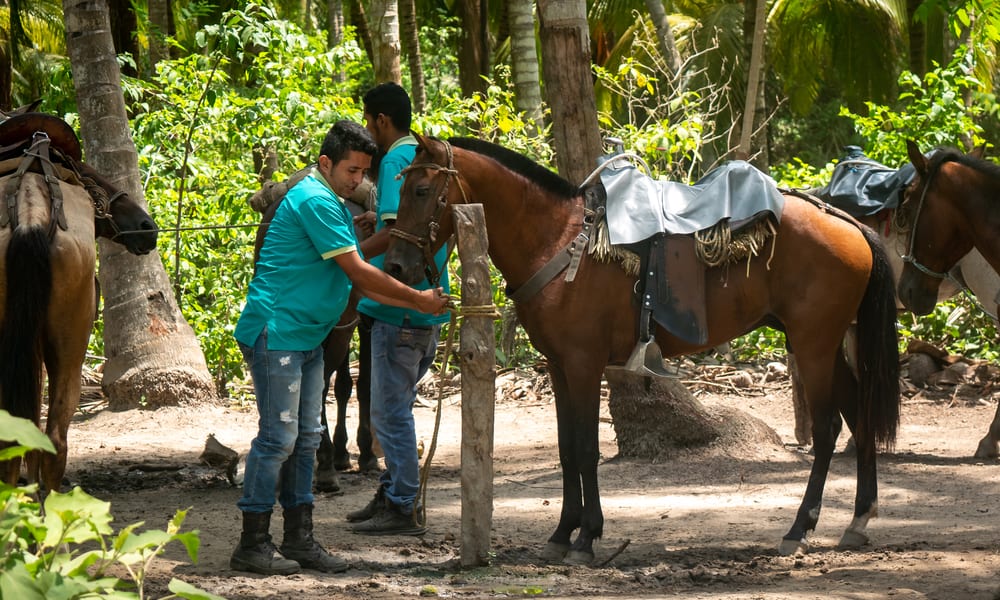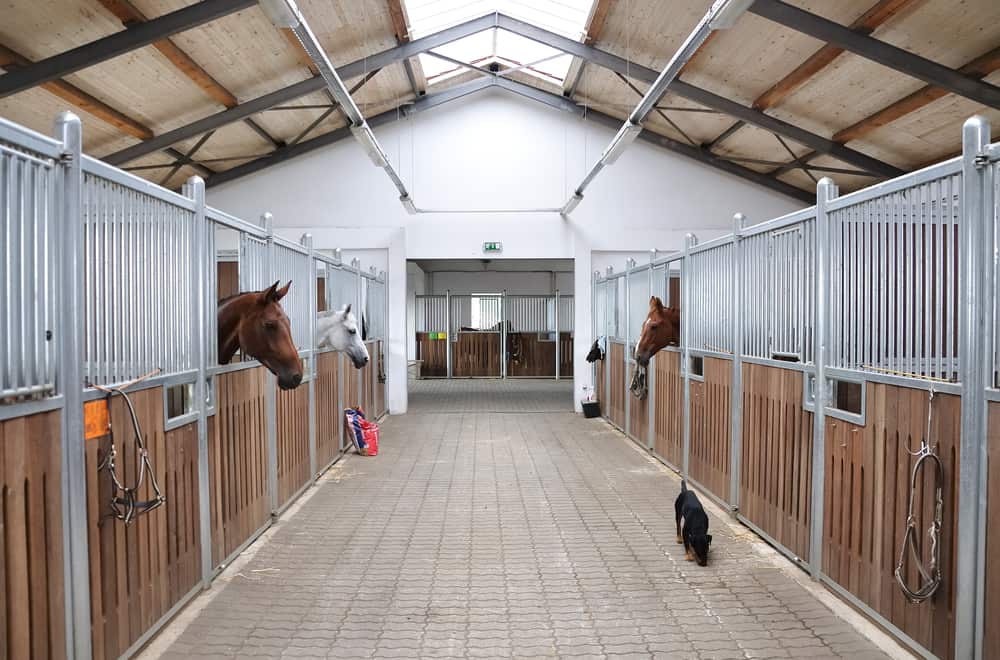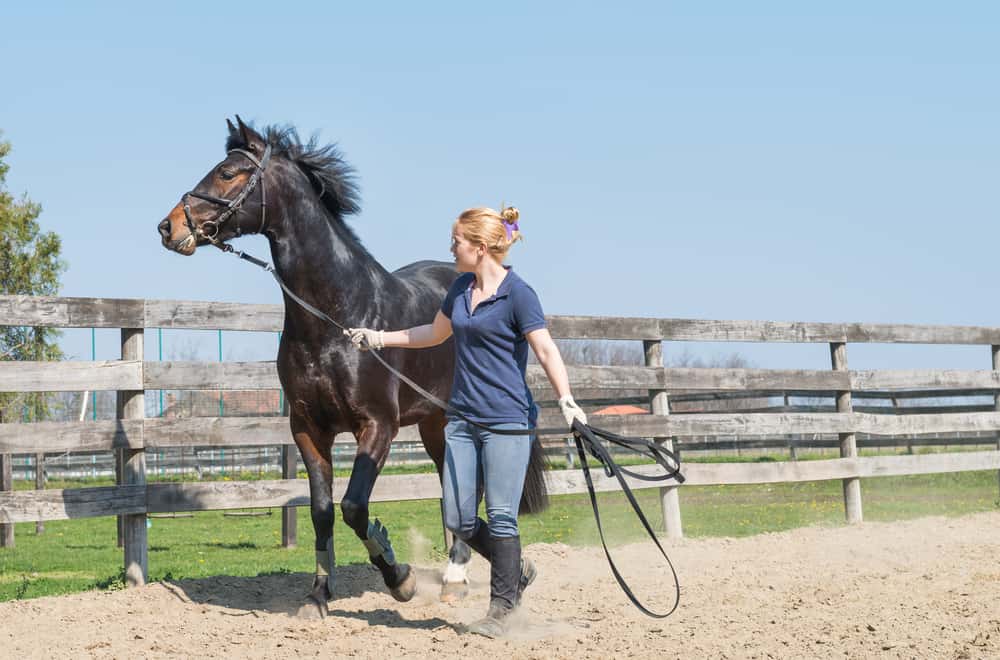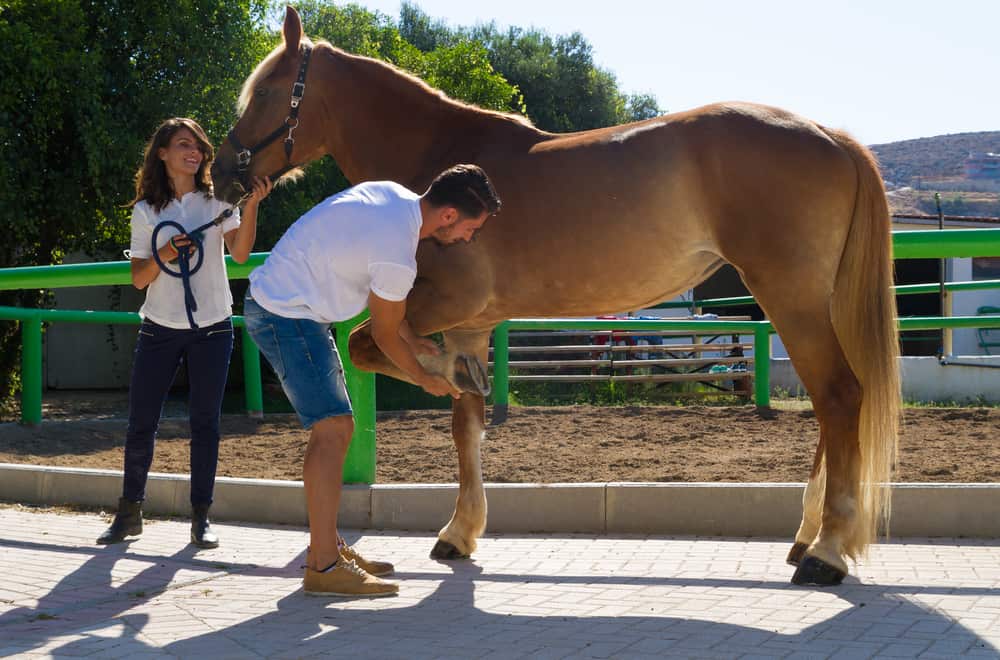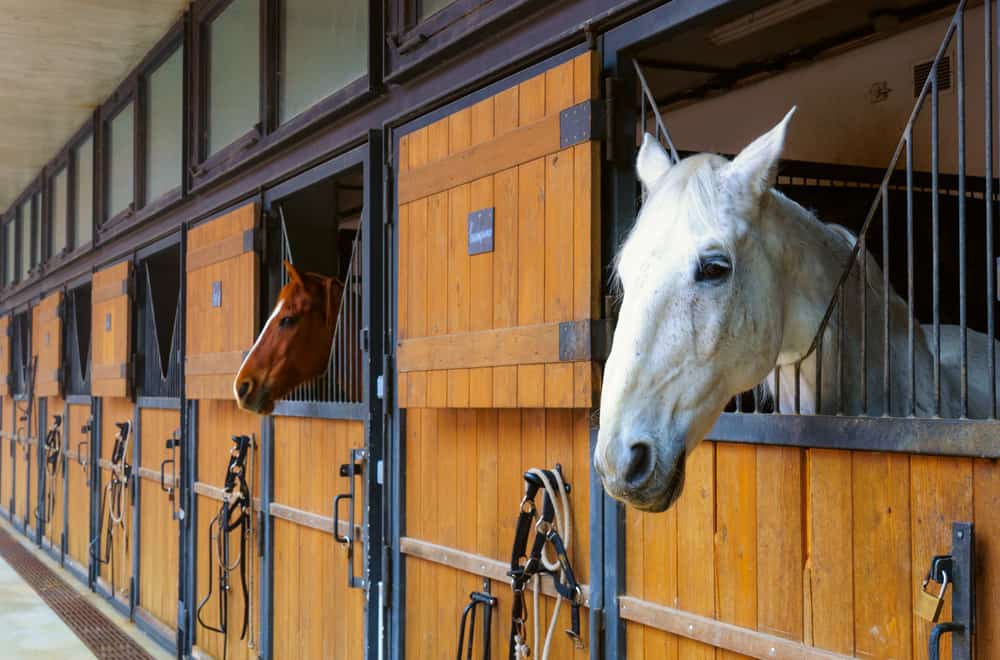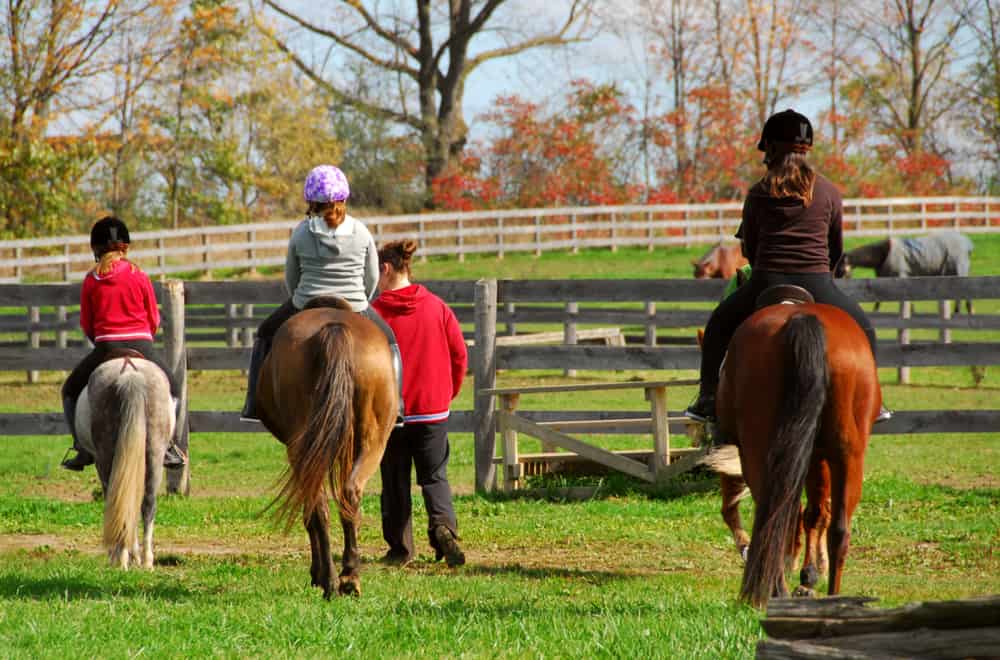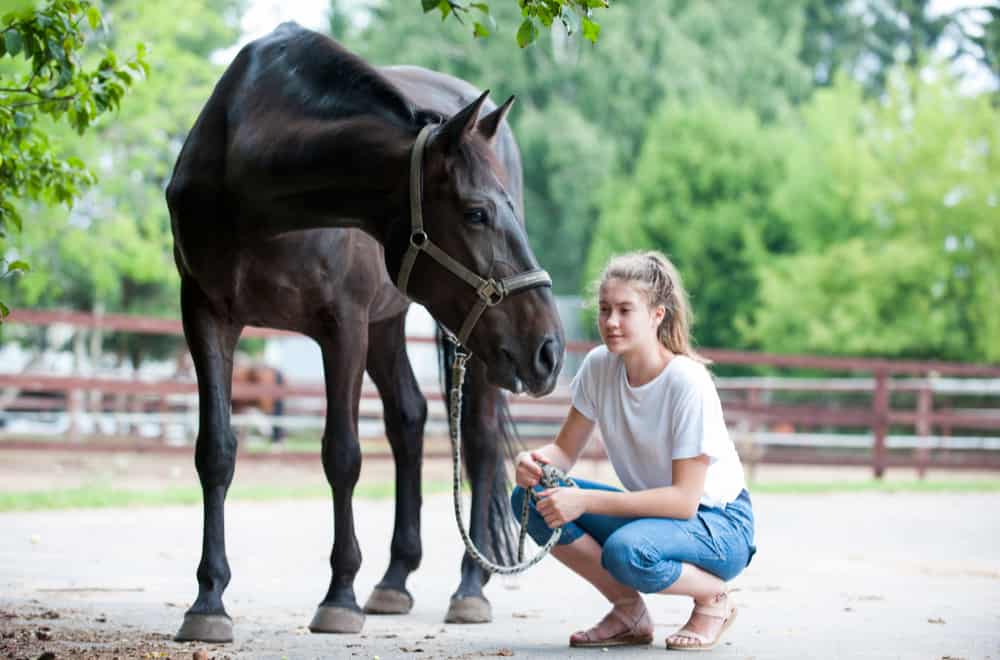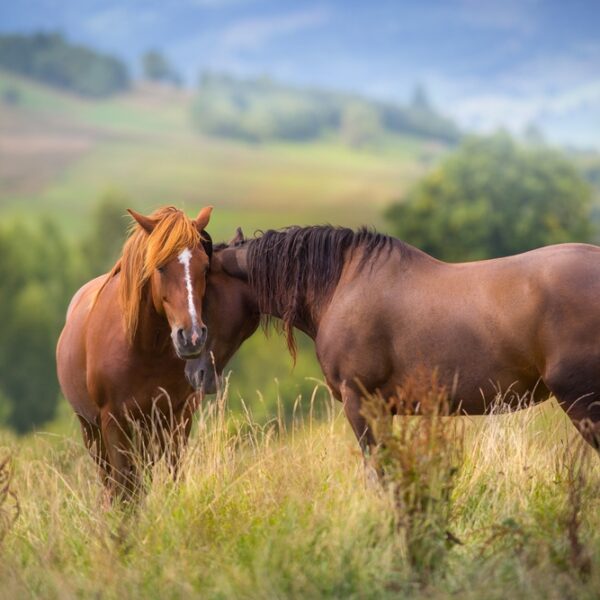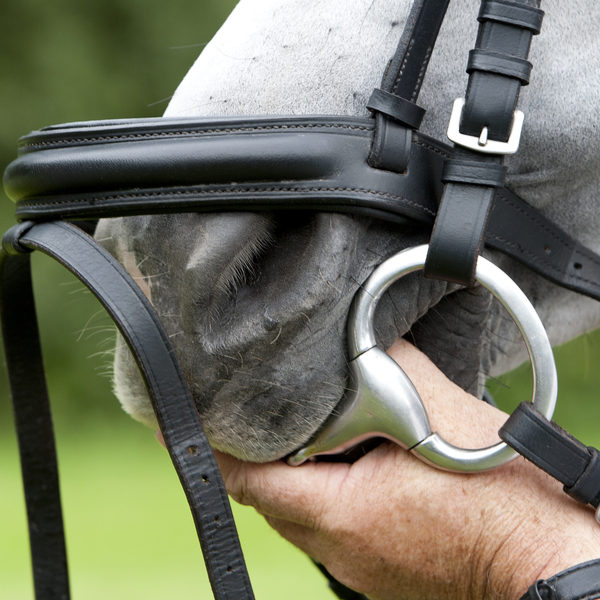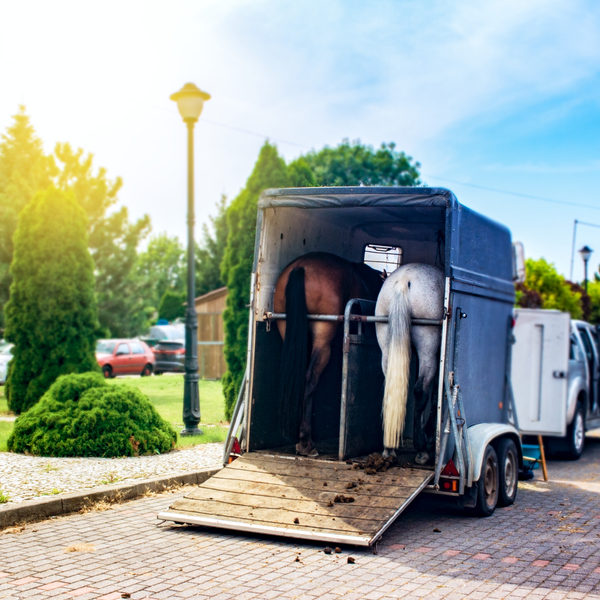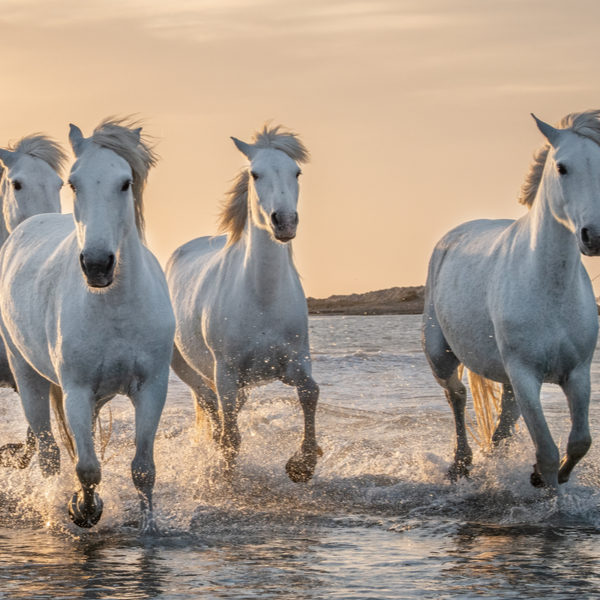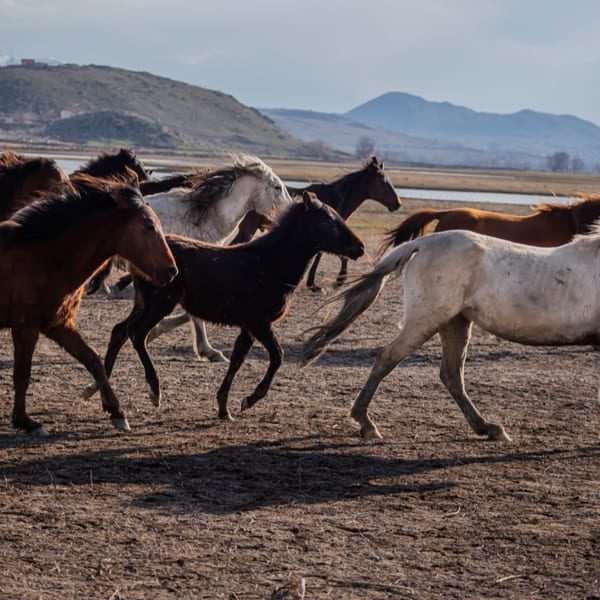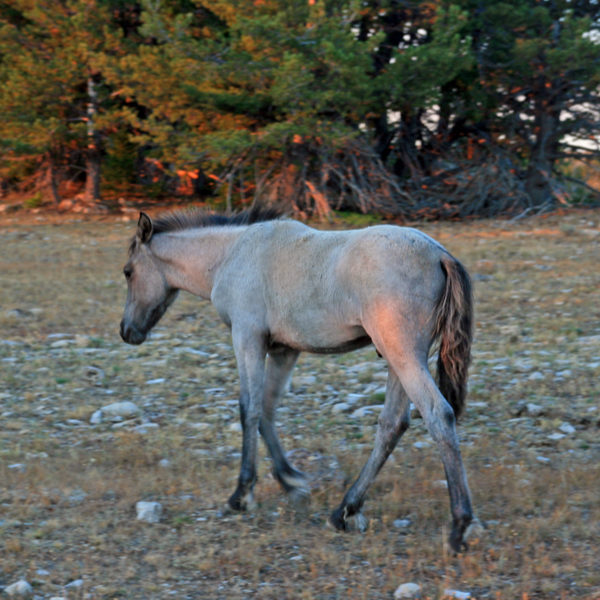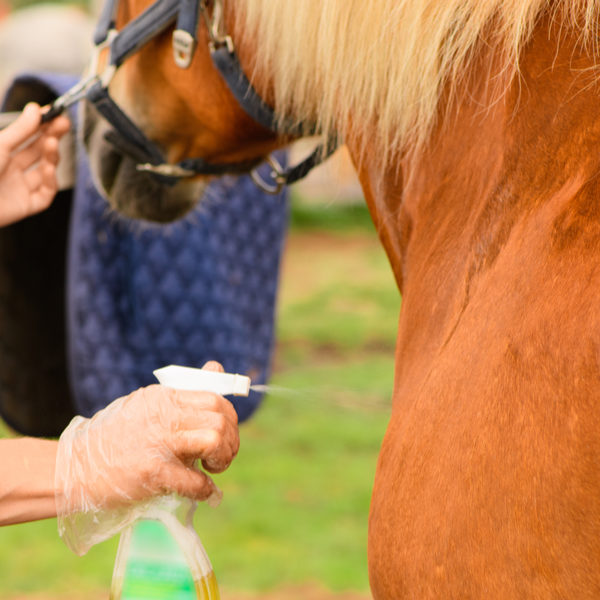Did you have your first horse riding lesson and now feel like you want to drop everything your doing and become a full-time cowboy or cowgirl? After my first lesson, I felt the same way, but I found a better option to put me on the fast train into the equestrian universe because of my situation.
And I want to share this option with you. Before purchasing a horse or thinking about a long-term leasing option, you also have the opportunity to rent a horse for the day.
Renting a horse for a day is a particularly great way to spend some quality time with a horse if you don’t have the financial means or your situation does not permit you to enter into a longer-term commitment.
Where Can You Rent A Horse?
Typically, equine training facilities, local stables, commercial trail riding camps, and private owners will be the primary sources to set up a potential rental.
Before we discuss the differences of each rental source, take a second to think about the riding environment that you are hoping for in your experience.
For example, if you are more than happy to ride through beautiful ombre green pastures, then plan to contact a stable or training facility. On the other hand, if you are the adventurous type or nature lover, commercial trail riding camps will best cater to your desires.
Commonly located near wooded areas or beach access areas, trail riding facilities are better adept at allowing you and your horse to meander through miles and miles of forest trails, even sometimes ending along the water’s edge for a nice trot.
Equine Training Facilities
Due to the professional nature of equine training facilities, it may be more challenging to rent a horse for a day than you anticipated. In any rental situation, you usually must sign a rental agreement and waiver of liability in the case that blah, blah, blah, blah, blah happens.
Just kidding. Renting a horse is a very serious undertaking, and an equine training facility has every right to take every precaution necessary to keep you and their horses safe and healthy.
Owners and staff of equine training facilities dedicate themselves to training horses that typically perform in one or many of the various riding spots available.
And because they have groomed their horses to compete in the arena or other show platform, health and wellness are critical because an injured horse requires expensive long-term therapies to return them to tip-top shape when possible.
So, in addition to the legal documentation, most often, you will have to prove your riding ability to the facility. An evaluation ride on the spot usually does this.
The advantage of going through with a daily horse rental from an equine training facility is that you will have exposure to generational experience in various equine disciplines.
Your experience may even inspire you to jump into the world of equestrian sports.
Private Owner Rentals
Horse owners will sometimes provide short-term horse rentals to interested riders if they are in a situation where they need their horses to be ridden on a more frequent basis or when they are thinking about selling one of their horses.
If you have the experience and are in the horse owner’s social circle, you may even have the opportunity to rent their horse for competition. Do not be surprised if asked to provide insurance in addition to signing the typical liability agreements.
Once inside the equestrian network, you will become part of a very close-knit community, where friends even offer to transport another’s horses across the country.
So if you happen to know someone, who knows someone, you may find yourself in front of a private owner willing to rent their horse for a day on the trails, rather than just the paddock area.
Local Stables
Horse stables are noticeably more calm than the typical professional training facility because they are often introducing horses to young children and adult beginners for the first time.
Search your local area for a horse stable that you can go for a visit. So often is the case; you will find one much closer than you expected. For example, I live just ten kilometers away from a stable behind a pine forest attached to a beautiful nature park for children. And guess what, I only found out after adventuring through this park for over a year.
Horse stables offer you yet another fantastic opportunity to see a lot of the work involved in maintaining horses and their facilities. As you walk around the stable, you may bump into a farrier fitting a horse with new shoes, a horse groomer, or even an equestrian veterinarian.
Typically, horse stables offer various services and activities, including:
- riding lessons
- horse training
- equine educational programs
- exciting riding camps
- horse boarding, and
- even throw a birthday party for little jockeys in the making.
Rental rates typically range from $35 to $50 per hour; however, prices could fluctuate greatly depending on your location and the particular stable.
The well-known Sun City Stables near Tampa Bay, Florida, charges $35 per hour or $105 for the entire day. Their website mentions that “you may trot and gallop [their] horses [and they] are the only stable around that permits this.”
Commercial Trail Riding Camps
Whether you choose a guided or unguided tour, commercial trail riding may be the most open alternative if you want to rent a horse for the day. And since I love the outdoors, I find that commercial trail riding facilities typically set up camp in gorgeous locations.
With similar pricing as local horse stables, trail riding is an excellent way for beginners to get acquainted with horsemanship. In addition, since the horses have already been well-trained, you have the benefit of partnering with a horse that is willing to forgive many of the novice riding mistakes you may make.
The horses are accustomed to the trails and will be happy to follow along with a group of others riders or join you for a private adventure. But be sure to call ahead to the facility and ask for a list of their requirements.
Some commercial facilities will not allow unguided trekking with their horses, and some may not allow you to bring their horses to a trot or gallop. But, again, please understand such measures are put in place to protect you and their horses.
Typically, at the beginning of your trail riding experience, trained personnel will provide the group with the basic rules and behavior around horses.
In addition to the basic instruction, trained staff will demonstrate some basic movements that each group member will perform before hitting the trails.
At the very least, you need to know how to start, stop, and turn your horse. Already, with these basic movements, you will be learning invaluable techniques such as:
- how to give a horse a command
- proper posture on the saddle
- how to properly hold its reins
- proper foot positioning in the stirrups
- and, inevitably, how to mount and dismount a horse
While you are not going to enter into a world-class arena with these new skills, you will be able to ride a horse successfully for the most part. I remember my first trail ride; my horse loved walking in reverse and making sudden bathroom stops along the journey.
So, Why Should You Have A Horse For The Day?
I think that renting a horse for the day makes for a beautiful experience if you are interested in the equestrian world but don’t have the time or money to invest in the responsibility of full-time ownership.
Also, renting a horse provides you with the opportunity to gain cross-discipline experience from various experienced riders and trainers. Some may especially like you and give you some trade secrets that will be fundamental to your success as a horse rider.
Riding horses is not like any other hobby you have ever done before. The object of the hobby is a real breathing animal that requires lots of attention and plenty of love daily.
Love is more than giving rewards and providing the horse with enough pasture to graze on. A relationship with a horse requires someone dedicated to good training, which includes more than I command, You Follow-style techniques.
Horses should explore their cognitive capabilities naturally in an environment that promotes a calm and pleasant atmosphere. As you inquire about various renting sources, I suggest that you take the time and take a trip to visit the facility before your planned excursion.
Things to Look Out For:
#1- Do the horses look healthy and well-cared for?
You may not be an equestrian expert, but some signs that you should watch out for include:
- Sores underneath the saddle and girth area
- Limping
- Dull or dirty coats of hair
- Overall physique (skinny with ribs showing or overweight)
#2-How well-kept are the stables and horses’ living areas?
The horse’s living environment should look clean and tidy with plenty of dry hay. Also, check if the horses’ living area has adequate air circulation. In addition, take a peek outside to ascertain whether the shelter can protect the horses from cold and inclement weather.
#3- Are the owner and staff willing to answer your questions?
I tend to rely on my intuition quite a lot when reading a person. I suggest that you trust your gut instincts when you speak to the staff at the riding facility. I think if the owners and staff exude passion when they talk about their horses and equine stewardship, then my confidence in their caring for the animals will be much higher than someone who wants to give me enough of an answer to shut me up and move along.
The above is not an exhaustive list to conclude whether or not a riding facility is entirely ethical in its practices; however, it offers some good indicators. The red flags mentioned may uncover the maltreatment of the animals, and just like me, I’m sure you don’t want any part of that.
Now, let’s take this a step further, and for a moment, consider the ethical ramifications of horse riding and its commercialized activity- this could make for another article piece altogether.
Imagine taking a visit to a riding facility and noticing any of the above red flags. Then, my advice would be to conduct a little of your research about the establishment and possibly even talk to locals in the community for any personal experiences or insight.
You may uncover some information (you probably wished you hadn’t) that could be critical to ensuring the horses’ safety and welfare. I would also strongly suggest that you contact your nearest animal humane society and mention some of the red flags that caught your attention.
A member of the humane society or related agency can then take a close look around and give their professional opinion on the environment and conditions the horses are living under.
Perhaps everything is all hunky-dory, and your untrained eye raised some uncertainties, or maybe your imagination ran along too fast; however, your actions could very well be the saving grace of some maltreated animals.
As an animal advocate, I cannot in good conscience write an article without referring to the importance of taking care of these majestic creatures that we have the privilege of cohabitating with.
What to Bring With You
I have a confession- I don’t trust pockets, so you will never find me without a backpack of some sort. However, a drawstring or zippered bag is a great and secure way of keeping track of all your smaller items that could fall out or get damaged during an activity.
In addition to a backpack, you may want to consider bringing these items to your day date with your horse buddy:
- an insulated water bottle or Camelbak
- helmet and pair of riding boots
- snacks for you and maybe a treat for the horse if allowed
- jacket or coat depending on the weather
- pair of gloves
- sunscreen
Always ask for a recommended list of essentials from the riding camp you have booked. Also, make sure to prepare any documents they may require before your arrival.
Final Thoughts
With a little bit of homework and research, you will be able to rent a horse for a day from an ethical riding camp and enjoy your initial exposure to the fascination of the equestrian world.
Would you please share your questions or concerns about renting a horse for a day in the comment section below?
